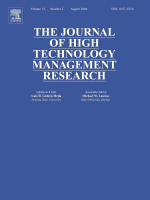
The study investigates a subset of management practices that may contribute to success of radical innovation efforts by large established firms. We focus on that subset of practices concerned with learning oriented approaches to risk management. Three such practices are examined: a) a real options approach to funding and evaluating projects, b) propensity to experiment in the marketplace, and c) commercialization of early applications quickly, which we call a harvesting strategy. Building on the learning, resource based view and dynamic capabilities literatures we argue that these three practices will facilitate radical innovation success. Industry clockspeed is incorporated as a moderator of the relationships between these practices and various manifestations of radical innovation success. Data collected from 85 high level individuals involved in radical innovation efforts in large firms indicate that real options approaches and experimental learning have strong positive effects on all measures of RI success, while harvesting strategies impact the development of new competencies, but not the other RI success measures. Harvesting strategies are more impactful when industry clockspeed is low.